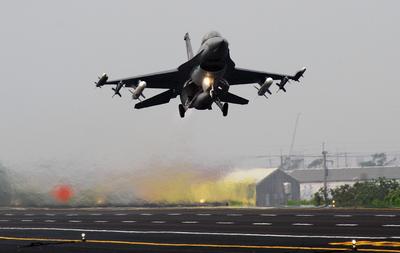Supporters of the weapons sales argue that they are imperative to ensuring Taiwan retains a self-defence capability. Supporters equally do not see the sales as heightening military competition across the Taiwan Strait, as the rapid relative growth of Chinese power already means the military balance has swung in favour of the People’s Liberation Army (PLA). But those opposed to the arms sales say that these actions have unnecessarily increased tensions between Washington and Beijing at an already sensitive time in Sino–US relations. China’s foreign minister, Yang Jiechi, indicated that he would cancel or postpone a series of military-to-military engagements with the US a week after the confirmation, but stopped short of suspending all bilateral defence ties. This further inflamed those opposed to the weapons upgrade, who anticipated a repeat of the January 2010 suspension of all military dialogue; Taiwan was once again proving itself to be a strategic liability and an obstacle to greater Sino–US relations.
Yet arguments for the termination of arms sales are cursory — they often make hazardous assumptions regarding domestic political trends and the geostrategic salience of Taiwan.
First, it cannot be assumed that Taiwan’s electorate will cede to Chinese pressure in voting for a pro-(re)unification leader and further yield its de facto independence to serve the regional and international interest. The PRC has invested much political capital in pursuit of its claims to Taiwan — much more than any other outstanding territorial dispute. But there is a high risk of losing this gamble due to the PRC’s lack of success in influencing Taiwan’s political landscape and volatile electorate. Beijing’s use of various means to discipline Taiwan’s government and convince its voters to reject Democratic Progressive Party (DPP) rule has been unsuccessful, largely because it vindicates fears of increasing Chinese political and economic leverage. This has come to the fore in the past year of political jockeying for the Taiwanese presidential and legislative elections to be held on 14 January 2012.
The Kuomintang’s (KMT) mid-term loss of support and the unexpected recovery of Tsai Ing-wen’s DPP were quite visible in a September 2011 poll, which showed the KMT’s chairman, Ma Ying-jeou, only 1 per cent ahead of Tsai in the approval ratings. In the past two years, Ma’s administration has come under pressure to counter the DPP’s charges that he has gambled away Taiwan’s sovereignty and security in exchange for short-term economic benefits from China. Consequently, if Taiwan is indeed committed to maintaining its de facto independence, then a decision by Washington not to bolster Taipei’s capabilities would threaten regional stability. By not providing the tools for Taiwan to deter a PRC attempt to (re)unify, Beijing’s confidence would be bolstered by its ability to restrain US power projection in the region — increasing the likelihood of the next cross-Strait crisis.
Second, the argument that the stability of the region is not worth risking the cross-Strait status quo overlooks the geostrategic salience of Taiwan. The assumption is that Taiwan’s self-defence needs should be sacrificed, as the recognition of Taiwanese sovereignty is not worth any increase in geostrategic competition between the US and China, or the possibility of conflict in East Asia. But US allies in the region often use US weapons sales to Taiwan as a measurement of Washington’s commitment to the security of East Asia. PLA bases on the northwest and southwest coast of Taiwan — should the ‘One China’ policy be implemented — do not bode well for the national security of those sensitive to China’s rise; in particular, Japan and South Korea to the north, and Vietnam and the Philippines to the south.
The US’ credibility in providing security and stability is also at stake. The PLA is gradually eroding America’s military dominance in the region, and Washington has been encouraging its existing allies to increase their role in regional security as a result. This was demonstrated in the development of the ‘Air-Sea Battle’ doctrine — a concept relying on hardened bases in Northeast Asia and closer integration of key US allies and partners in the Asia Pacific. If Washington wants its allies to commit to such plans, it, too, must demonstrate its obligations to the region — one of which is helping to provide for Taiwan’s self-defence. And given the persistent Taiwanese desire for independence, deterring Beijing’s attempts to change the status quo by force will best serve Washington’s interest in regional stability.
Sheryn Lee is a T.B. Millar scholar and Masters student in Strategy and Defence at the Australian National University.

